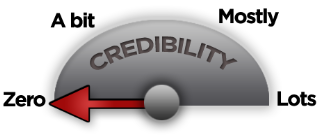
Fast, affordable Internet access for all.

 So who exactly is "Look Before We Leap?" They cannot point to any real local support in the community.
So who exactly is "Look Before We Leap?" They cannot point to any real local support in the community.Bryan Baum has appeared at several forums in support of 2A, including a Longmont Area Chamber of Commerce forum in which he urged out-of-town opponents of the ballot question to "get out of town" and let Longmont settle its own issues.The group said "This is obviously a mistake," Merritt said. "We'll get that fixed." Yeah sure. Whoops. We accidentally claimed a prominent figure as a supporter. Their response? They took his name off that list but left his wife's name on their site!
 This is a group with absolutely zero credibility. But they have tons of funding -- likely from Comcast and incumbent trade groups that fight these initiatives everywhere to preserve what is essentially a monopoly for the cable and telephone companies. We just republished an op-ed outlining some these tactics from 2009.
Now the "Look Before We Leap" group is accusing the City of distributing propaganda.
This is a group with absolutely zero credibility. But they have tons of funding -- likely from Comcast and incumbent trade groups that fight these initiatives everywhere to preserve what is essentially a monopoly for the cable and telephone companies. We just republished an op-ed outlining some these tactics from 2009.
Now the "Look Before We Leap" group is accusing the City of distributing propaganda.Residents in Longmont, Colorado are preparing for a municipal referendum to utilize an existing fiber optic network.
The referendum is set for Tuesday, November 1, 2011.
At issue is how the city can use a ring of fiber-optic cables it built around the city in the late 90's as part of its electrical infrastructure. Much of the capacity on the ring remains unused but the city requires approval of the voters in a referendum before it can offer services to local businesses -- which will encourage economic development by creating more telecommunications choices in the community for businesses and residents (some background here).
This is referendum question 2A:
Ballot Question 2A: Without increasing taxes, shall the citizens of the City of Longmont, Colorado, re-establish their City's right to provide all services restricted since 2005 by Title 29, article 27 of the Colorado Revised Statutes, described as "advanced services," "telecommunications services" and "cable television services," including any new and improved high bandwidth services based on future technologies, utilizing community owned infrastructure including but not limited to the existing fiber optic network, either directly or indirectly with public or private sector partners, to potential subscribers that may include telecommunications service providers, residential or commercial users within the City and the service area of the City's electric utility enterprise?
Big cable and telco operators have wasted no time in spreading fear and false information to scare voters into voting against using a valuable asset owned by the community. When the community organized a debate for the end of September, the only people willing to defend Comcast's position came from far outside the community to do it.
Trying to get in the mind of the big incumbents of Longmont, we developed this cartoon (the style is an homage to the "Get Your War On" comic).
Without that vote, the city can't let homes or businesses use that fiber without a vote, thanks to a 2005 state law. It's a fight the city's lost once before in 2009, when opponents -- including the Colorado Cable Telecommunications Association -- spent $245,513 to urge the measure's defeat. This time out, there's a different tack. The city has been underlining in discussions that the measure would "restore its rights" to provide telecommunications service.
The first attempt at getting that approval didn't go so well in 2009. According to city records, opponents -- including the Colorado Cable Telecommunications Association -- spent $245,513 to defeat that ballot measure, the largest amount ever spent on a Longmont city election. By contrast, the city legally couldn't campaign on its own behalf, and the explanations that were out there didn't explain well, according to Longmont Power & Communications director Tom Roiniotis.The cable and phone companies created an astroturf group called "No Blank Check" that then used standard fear, uncertainty, and doubt tactics to spread misinformation around the community.
A 2005 Colorado law bans municipalities from providing any type of advanced telecommunications services unless more than 50 percent of the voters favor the plan. Longmont's ballot question asked voters to allow the city to provide services either directly or in partnership with a private company, but 57 percent of voters said no. "Comcast decided it didn't want Longmont to go there," says Tom Roiniotis, director of Longmont Power & Communications, the city's community-owned electric utility. Comcast spent about $200,000, the largest contribution to any campaign in Longmont's history, to defeat the measure, Roiniotis says. Meanwhile, once the issue became a ballot initiative, Longmont was not allowed to spend any money to campaign for the ballot initiative because that would violate campaign financing laws. "We were walking with one arm and one leg tied behind our back when it came to this campaign," Roiniotis says.
“It’s at least a three times reduction in cost,” Niemann said of leasing fiber from the city, versus contracting with a commercial provider. “And oftentimes, if you go with a commercial provider, you have construction costs.”The city would like to expand the network, both to bring competition to the DSL/cable duopoly, and to invest in smart grid applications for its public power utility. Unfortunately, they have to win a referendum per Colorado's incumbent-protection law. The incumbents are more than willing to spend hundreds of thousands against any such measure, knowing they would lose far more in profits if they had to deal with competition in the community.
Ohio-based DHB Networks owes the Boulder County treasurer’s office $87,000 in unpaid business personal property tax, and the county demanded the company cease operations unless it pays those taxes. DHB also owes the city of Longmont. Longmont-based RidgeviewTel is running the network, at least until the Wi-Fi equipment is auctioned off Thursday — at which point, 400 to 600 customers will be without Internet access, RidgeviewTel CEO Vince Jordan said.Though the city already has fiber assets that could be used for backhaul as well as other expertise it could use in continuing to run the network, it cannot step in to run a network that would be useful to the community:
While the city can step in and operate the system, it would be only for municipal needs — such as police, fire and utility services — and not to provide Wi-Fi to customers. “Our hands were always tied,” Roiniotis said. “We could buy the system and operate it, but only for our own purposes. We can’t provide the retail part of it.” The city’s hands also were tied when it came to campaigning. State law bans governments from spending public money to campaign for or against local ballot questions.Though 400-600 people may not seem like a lot of people to leave stranded, many of those on the network were the ones that needed a low cost alternative. This is one of the reason some hoped for a last minute resolution to the impending auction.
A group called No Blank Check Longmont, backed with $150,000 from the Colorado Cable Telecommunications Association, spent more than $143,000 in cash and benefited from more than $46,000 in in-kind contributions in its campaign to defeat 2C.Up on top of Minnesota's North Shore, the Cook County Broadband project got a mixed reception. Though they received the authority to raise a 1% sales tax that would have helped pay for the project, they failed to achieve the necessary 65% super majority required under ancient Minnesota law (1915) to operate a telephone service. A majority supported the idea - 56% - but without the ability to offer a triple-play, the county will have to reconsider its approach. Though such results are disappointing, every community with a locally owned community network has had to deal with such setbacks. The question is how organizers can respond to challengers and how badly the community wants fast and affordable broadband networks. In the near term, I hope that both the Minnesota Broadband Task Force Report (due Friday) and the FCC National Broadband Plan recommend abolishing such barriers to public ownership as a 65% referendum.